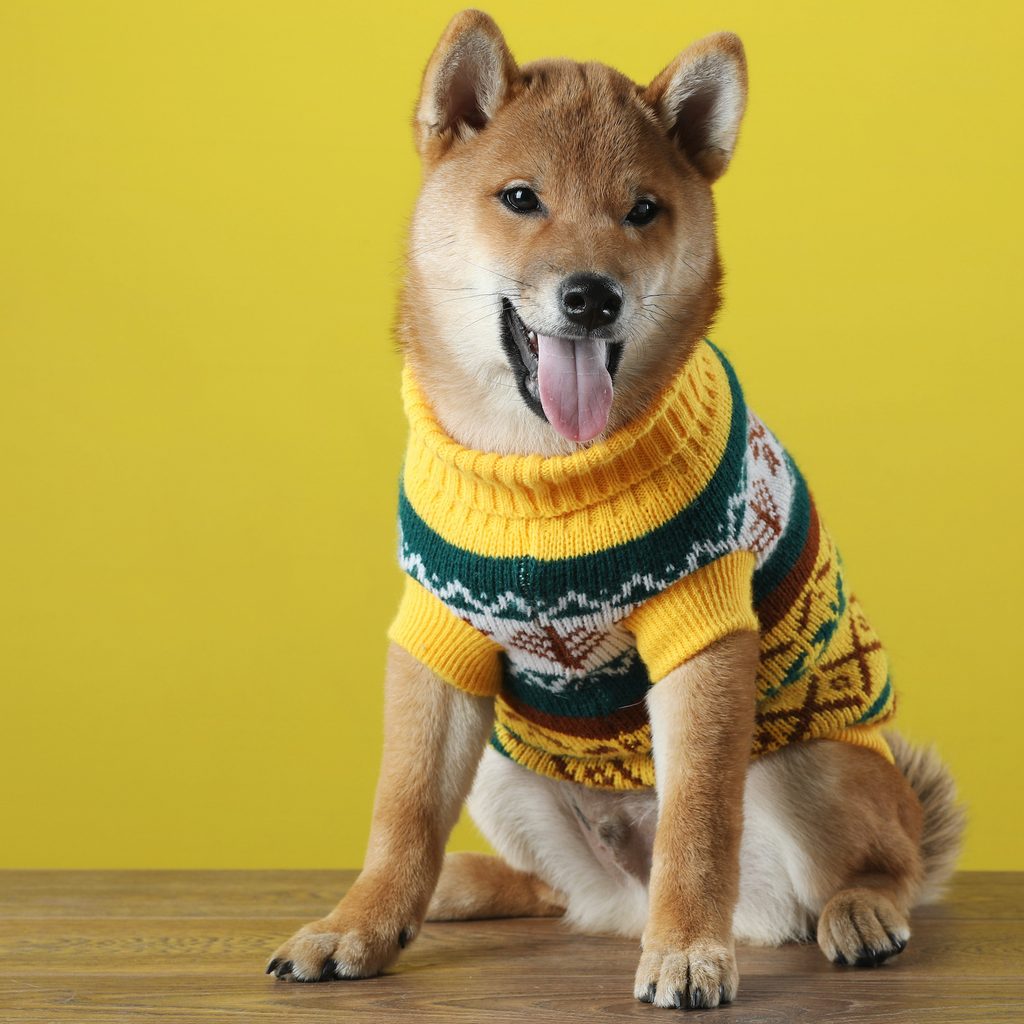Whichever side of the debate you’re on, there’s no denying that people have strong opinions about dogs in clothes. From socks to shirts to Halloween costumes, even dog sweaters are a topic for conversation among pet parents and animal advocates alike, but what do the professionals say?
In the end, it all comes down to your individual pup. Some of the best dog sweaters are no match for canines who don’t like clothes, so it’s certainly something you can’t force on your pup. If your dog tries out a sweater and finds it enjoyable — or at least tolerable — it’s possible they can benefit from it in more ways than one. Here’s what to consider before buying (or waiting to buy) your dog a sweater this winter.

Do dogs need a sweater in the cold?
The consensus is in: maybe! According to the experts with the American Kennel Club, whether a dog needs a sweater depends a lot on their physical build. Sometimes, you’ll know right away whether your dog needs a sweater because of their breed — but not always.
Certain breeds, sizes, and characteristics should always have an extra layer of protection when the dog spends more than a moment outside. If your pup falls into any of these categories, which we’ll list below, keep reading to the end of this article to find the perfect winter coat for them.
Does my dog need a sweater?
If your dog is a small, toy, or miniature breed that also has a short coat (think of Chihuahuas, French bulldogs, etc.), they should be wearing something extra to protect them from the cold. Tiny bodies can’t always maintain enough body heat when necessary, and their naturally short fur doesn’t help. Thankfully, investing in a sweater does!
Other dogs who should have a sweater include:
- Lowriders, like corgis and other dogs who stand low to the ground: These breeds are likely to pick up frost, rain, or ice on their tummies as they walk if they aren’t properly protected.
- Dogs who are groomed to have short fur, like poodle mixes, will be missing some of their natural cold protection when they’re clipped.
- Senior dogs
- Pups with weakened immune systems or other medical diagnoses
- Lean, thin breeds like greyhounds: These dogs don’t have a lot of fat or fur to help keep them warm.
The rest depends on your individual dog! Some dogs that don’t fit in any of these categories are known to shiver or cuddle when it gets chilly. Just watch their body language.
Why some dogs benefit from wearing a sweater
When a pup wears a properly fitting sweater, their neck and tummy will be protected from any snow or ice that’s already on the ground. If you get caught in a flurry, their coat will keep their back warm and dry, too. Some dog jackets even have hoods!
Wearing a sweater helps any pup retain body heat whether they’re inside or outdoors. Many comfy options are available no matter what kind of look or fabric you’re going for, so there’s something for almost every dog somewhere out there.
Have you heard about weighted blankets? They’re exactly what they sound like: a blanket with small weights sewn in to give a person a sense of calm and relaxation. Many dogs experience the same calming effect from swaddles or sweaters, whether they’re wearing the famous ThunderShirt or a nice coat you found online.

Why some dogs won’t do well in a sweater
As helpful as they are, sweaters and jackets aren’t meant for every dog. Breeds who have origins in the Arctic — Siberian husky, Alaskan malamute, etc. — tend to have thick, layered fur that needs no extra help keeping them warm. In fact, a thick sweater might even overheat them!
Other dogs simply do not like wearing clothes of any kind, or they may be particular about the fit or feel of the sweater. If no coat seems to do the trick after a few tries, it just may not be their cup of tea. It happens!
The best sweaters for dogs
Now comes the fun part: picking out a sweater for your pup. Whatever you get, make sure it can meet the purpose you have set in mind. Do you want something waterproof? Try a piece like the Frisco Rubber Duckie Dog Raincoat. Something soft and thick for your pup to sleep in? A basic hoodie should do the trick.
The ideal sweater for being outdoors will cover the underside of your dog completely, to keep ice or water out of their fur. Many jackets will have a rain- and snow-proof outer layer to guard against the elements, though there are also simple windbreakers for milder storms. Something like the Pet Life Ski Parka is an all-encompassing coat that’s meant to withstand rain, snow, and more.
By keeping an open mind and a positive attitude, you’re sure to help your furry friend find their perfect sweater in no time. Don’t fret if it takes a little trial and error to get there — but be sure to share the blankets with your fur baby in the meantime! Everyone deserves to stay warm and cozy this winter, whether they have two legs or four.




